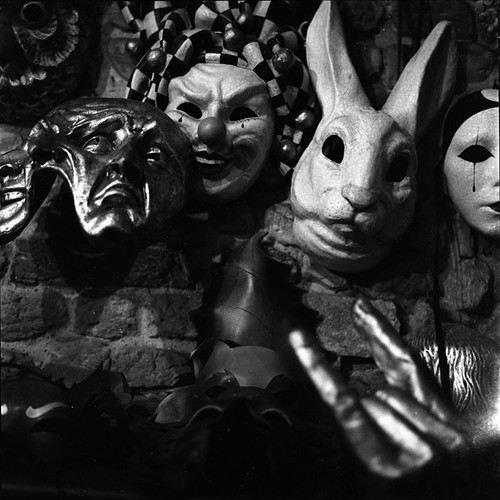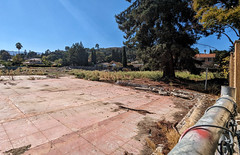evidently these masks rock
digimatized
The word mask comes from a Medieval Latin root meaning “specter,” “witch,” or “nightmare.” It’s a slippery, troubling word, full of suspicion and vaguely suggestive of malice. A mask’s appearance may be jovial or terrifying, but it is at heart a dissembler’s tool, intended to obscure, confuse, conceal, or disarm. Whether an ancient shaman, a stately Noh actor, or a coquettish Renaissance dancer wears it, there is no such thing as a kindly mask.
Flirtatious, perhaps; intriguing, certainly. Mysterious as the face of God, supple as the sweetest lover’s lie—the moment we invented masks we acknowledged that we live in a fabulous, fictive world of our own devising. With fig leaves we marked the public shame of our first sin; with masks we slyly celebrate our ability to hide all the ones that have followed since.
Blog photograph copyrighted to the photographer and used with permission by utata.org. All photographs used on utata.org are stored on flickr.com and are obtained via the flickr API. Text is copyrighted to the author, meerasethi and is used with permission by utata.org. Please see Show and Share Your Work








